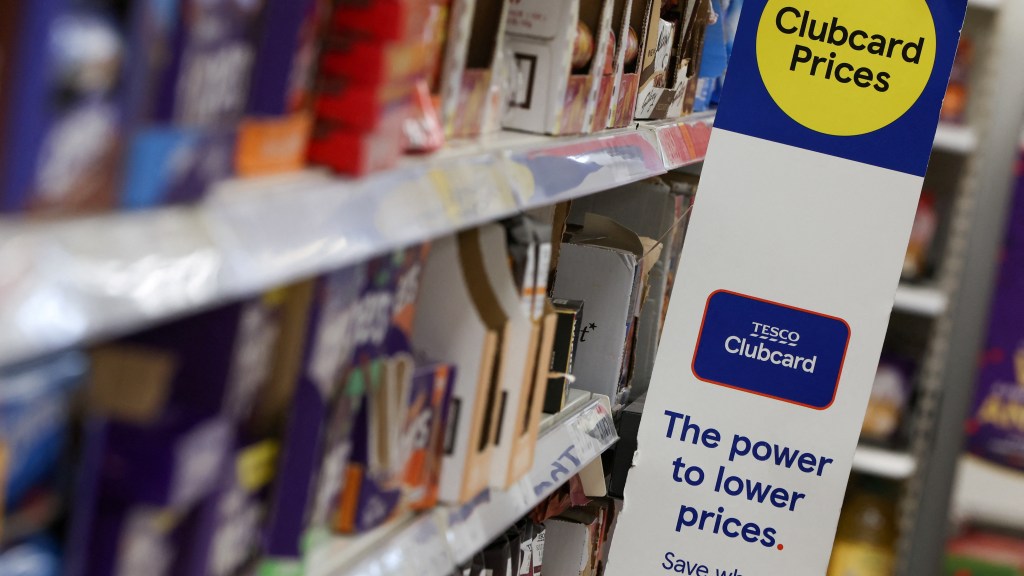Tesco to Return £700 Million to Shareholders Following Barclays Banking Sale
Tesco, the largest grocery retailer in Britain, is set to return £700 million to its shareholders after successfully concluding the sale of its retail banking division to Barclays.
The company announced plans to initiate a buyback of shares from its investors through an “incremental” buyback program, following the completion of the last phase of an existing £1 billion buyback initiative. As of October 25, Tesco had already executed £688 million of the current buyback.
UBS Bank analysts remarked that the decision to return the full £700 million in cash proceeds to shareholders is “subtly better than previous indications of returning ‘most’ of the proceeds.”
As a result of this announcement, Tesco’s shares rose by 5.5p, marking a 1.7 percent increase to close at 348p. Year-to-date, Tesco’s stock has appreciated by approximately 28 percent.
This move aligns Tesco with other London-listed firms, such as Sainsbury’s, BP, and Shell, which have recently announced share buyback programs to return surplus cash to their investors.
Critics of such buyback strategies argue that they can deprive companies of critical funds necessary for investments in new products and innovations. Some also posit that executives might leverage these programs to artificially inflate share prices by increasing market demand.
Tesco’s share buyback program follows its February announcement regarding the sale of Tesco Bank to Barclays UK for an initial £600 million.

On Friday, the supermarket chain confirmed it had finalized the sale of most of its banking services, including credit cards, loans, and savings accounts.
This agreement sets in motion a decade-long partnership with Barclays, during which time Tesco’s branding will remain on its banking products, which are supplied by Barclays.
Barclays will handle the marketing and distribution of credit cards, loans, and deposit products under the Tesco brand, although employees and customers of Tesco Bank will transition to the ownership of Barclays.
Ken Murphy, the chief executive of Tesco, stated that this partnership would “unlock even greater value” for Tesco Bank customers, providing them with access to “new and innovative propositions, while still benefiting from the unique advantages of the Tesco Clubcard.”
The agreement encompasses Tesco’s Clubcard operations, which reward customers with loyalty points for shopping at the chain in exchange for their personal data.
Previously, Tesco sold off its mortgage division and has been in the process of divesting its banking assets.
In a broader trend, other retailers are also moving away from banking. Earlier this year, Sainsbury’s announced it would abandon its ambitions to build a significant retail banking operation, intending to wind down Sainsbury’s Bank after 27 years.
Tesco holds a commanding 27 percent share of the grocery market. The company’s executive recently noted that consumers are in a “good shape” ahead of the Christmas season, beginning to purchase more premium items, which has led the FTSE 100 retailer to adjust its profit forecasts upwards.




Post Comment